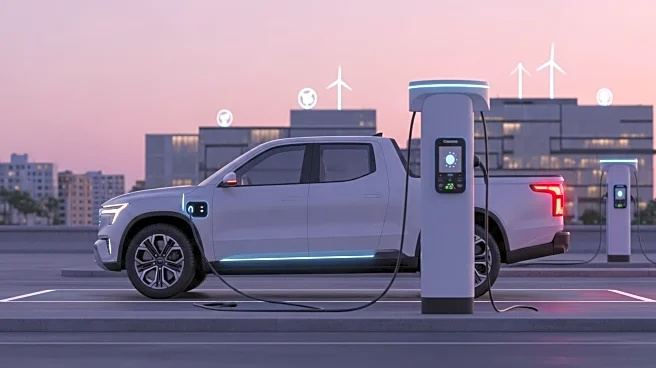What's Happening?
Stellantis, the parent company of Ram, has announced the cancellation of the all-electric Ram 1500 REV, initially unveiled during the 2023 Super Bowl. The decision comes after delays and changing market conditions, with the company citing slowing demand for full-sized battery electric trucks in North America. Instead, Ram will focus on a range-extended EV model, previously known as the Ramcharger, set for release in 2026. This model will feature a range-extending engine that recharges the battery on the move, offering long-haul capability without relying solely on charging infrastructure.
Why It's Important?
The shift from a pure electric model to a range-extended EV reflects broader trends in the automotive industry, where manufacturers are adapting to consumer preferences and infrastructure challenges. The decision highlights the difficulties in achieving mass adoption of electric vehicles, particularly in the truck segment, due to high production costs and limited charging networks. By opting for a range-extended model, Stellantis aims to balance environmental goals with practical consumer needs, potentially influencing other automakers to reconsider their EV strategies.
What's Next?
As Stellantis prepares to launch the range-extended Ram 1500 REV, the company will focus on marketing the vehicle's flexibility and performance capabilities. The move may prompt other manufacturers to explore similar hybrid solutions, impacting the competitive landscape of the EV market. Additionally, Stellantis will need to address regulatory concerns regarding emissions standards and ensure the new model meets consumer expectations for sustainability and utility.
Beyond the Headlines
The decision to pivot to a range-extended model raises questions about the future of electric trucks and the role of hybrid technologies in achieving environmental goals. It may spark discussions on the balance between innovation and practicality in the automotive industry, as well as the need for improved infrastructure to support full electrification. The move also reflects the challenges of aligning corporate strategies with evolving market dynamics and consumer preferences.












